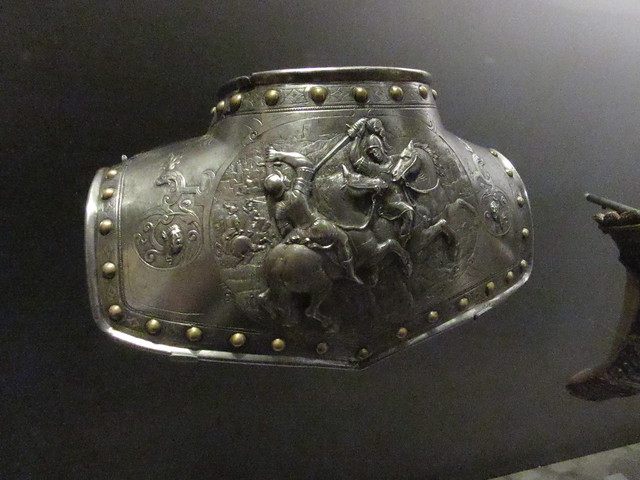gorget /GOR-jət/. noun. Armor for the throat. The part of a wimple that covers the neck. An ornament for the neck such as a necklace or decorative collar. A distinctive color on the throat of an animal, usually a bird. From Old French gorge (throat).
“He was wearing too much. The coat of mail with its standard, the cuirass with gorget and pauldrons, the hounskul helmet from which he could scarcely see out…” (Italo Calvino)
“He watched the iridescent play of the light upon its gorget and the slow pulsing of blood from its breast with painful feelings of identification which were interrupted by a sudden silence: The bird had stopped its stroll and was extending its wings.” (Ralph Ellison)
“The officer waited for them, dressed like a recruiter, molten at the throat where his gorget took the sun.” (Thomas Keneally)
“I know a slave when I see one. A slave is a slave, with or without a gorget; if he doesn’t wear it around his neck, he has it tattooed on his soul. It takes at least three generations to rub it off.” (H. Beam Piper)
“Reddish as a fox’s brush,
A mark of a gorget in the flesh
Of her throat.”
(Seamus Heaney)
“It was reflective, I think, burnished beyond any merely human skill, so that its own material was invisible and only the greens and browns of the wood could be seen, twisted by the shapes of cuirass, gorget, and greaves.” (Gene Wolfe)
“…the hospitality of Lida’s mother, an inconspicuous woman who wore a gorget and spectacles, knew no bounds.” (Vladimir Nabokov)




